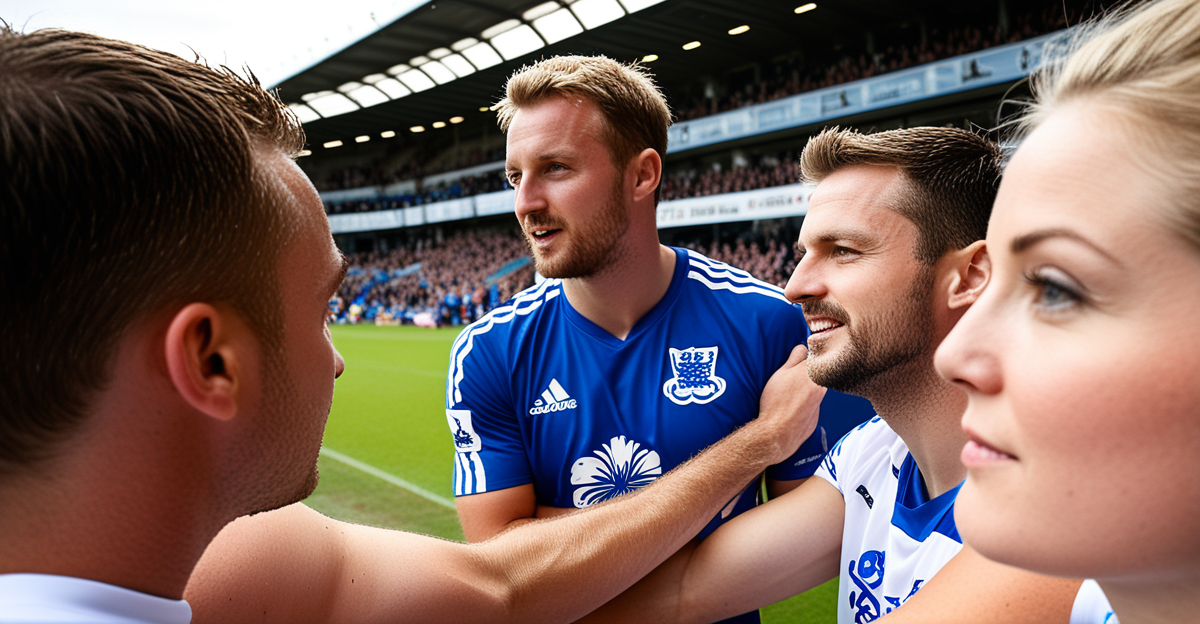Physical Health Benefits of UK Sports Participation
Participation in community sports significantly enhances physical health across the UK. Regular exercise through local sports clubs improves fitness levels, reduces risks of chronic diseases, and promotes healthier lifestyles. The accessibility of sports clubs plays a vital role by providing structured opportunities for people of all ages to engage in physical activity within their communities.
UK statistics reveal that individuals involved in sports report better cardiovascular health and lower obesity rates compared to those less active. For example, data indicates that members of sports clubs exercise more frequently, helping to raise general public health standards. This is particularly important as improving physical health through sports can lessen the burden on NHS resources.
Also read : What role does sports education play in developing young athletes in the UK?
Sports participation also supports social aspects of health by encouraging group activities that motivate sustained exercise habits. Public health campaigns consistently highlight that community sports contribute to a more active population, combating sedentary behaviour common in modern lifestyles. Thus, the synergy between sports clubs and public health initiatives is crucial in driving wide-reaching health benefits across UK populations.
Promoting Social Inclusion and Cohesion
Fostering diversity and belonging through shared sports experiences
Also read : Can UK Sports Transform the National Image?
Community sports serve as powerful platforms to enhance social inclusion by bringing together individuals from diverse backgrounds. Participation in sports clubs encourages community integration, breaking down social barriers and fostering a sense of belonging. This inclusion boosts social cohesion by promoting mutual understanding and respect among diverse groups.
How do sports achieve this? Through regular interaction in team settings, people build relationships regardless of age, ethnicity, or socio-economic status. UK initiatives actively promote sports diversity and implement anti-discrimination policies to ensure equal access and participation opportunities for all. Campaigns target reducing prejudice and celebrating differences within sports environments.
Several grassroots organisations play a pivotal role in driving inclusion, offering tailored programmes for underrepresented populations. These efforts help create safe, welcoming spaces where participants feel valued and supported. The inclusive nature of community sports reinforces shared identities and social solidarity, which are essential for cohesive communities.
This social benefit complements the physical health advantages, illustrating how public health goals and social policies converge through sports participation. By fostering inclusion and cohesion, UK sports contribute significantly to stronger, more resilient communities.
Supporting Youth Development and Opportunities
Community sports are vital for youth development, offering structured environments where young people can build crucial life skills. Participation in sports clubs fosters teamwork, discipline, and confidence—essential ingredients for personal growth. How do sports contribute exactly? They provide regular physical activity within supportive peer groups, which encourages responsibility and resilience.
Sports clubs often run dedicated youth programmes UK-wide. These initiatives nurture talent and promote positive behaviour, particularly in disadvantaged areas. For instance, grassroots teams facilitate mentoring relationships between coaches and participants, enhancing social and emotional skills alongside athletic ability. This combination helps reduce youth crime and exclusion by channeling energy into constructive pursuits.
UK programmes illustrate measurable impacts, with many young athletes reporting improved self-esteem and academic performance. Some success stories involve players progressing from local clubs to elite academies, showing how community sports serve as stepping stones. Furthermore, these opportunities equip youth with leadership skills needed beyond sports, supporting lifelong development.
Thus, the role of community sports in youth development extends far beyond fitness; it creates pathways for education, social inclusion, and empowerment, benefiting individuals and wider communities alike.
Enhancing Mental Well-being and Emotional Resilience
Sports as a catalyst for psychological strength and community support
Community sports offer profound benefits for mental well-being by reducing stress, anxiety, and depression. Research consistently shows that participation in regular exercise elevates mood through the release of endorphins, promoting sustained emotional health. How does this happen? Physical activity activates brain chemicals that improve feelings of happiness and relaxation, supporting overall emotional health.
UK campaigns emphasize the importance of integrating sports therapy into community health strategies. For example, mental health organisations partner with sports clubs to create safe spaces where individuals can engage in physical activity while accessing emotional support. This collaboration addresses stigma and encourages people to seek help via familiar community networks.
Psychological benefits extend beyond individuals to foster group resilience. Team sports cultivate social connections, reducing loneliness and building support networks. These environments empower participants to share challenges and celebrate successes, reinforcing emotional resilience at the community level.
Real UK case studies highlight how sports initiatives tailored for mental wellness offer measurable improvements in participants’ quality of life. By combining physical activity with psychological care, UK campaigns underline the crucial role of sports in enhancing mental well-being nationwide.
Fostering Local Pride and Economic Impact
Sports as a driver of community identity and local prosperity
Local pride often blossoms around community and professional sports clubs, reinforcing a strong community identity. How does this happen? Shared support for local teams nurtures a sense of belonging and unity, connecting residents across generations and backgrounds. This unity contributes significantly to social cohesion while celebrating local heritage and culture.
The economic benefits of sports for UK communities are substantial. Hosting major sports events and sustaining clubs provide employment, increase tourism, and boost spending in local businesses such as hospitality and retail. For instance, towns with active sports infrastructures often see elevated footfall and investments, aiding urban regeneration. These economic impacts create a cycle encouraging further community engagement and development.
Examples abound: several UK towns have revitalised districts through sports-led initiatives, transforming disused areas into vibrant hubs of activity. This regeneration brings new life to local economies and enhances residents’ quality of life. Moreover, the visibility of sports events raises the profile of communities, attracting wider attention and resources.
Thus, the synergy between local pride and economic growth underscores the powerful role of sports in fostering resilient, thriving UK communities.








